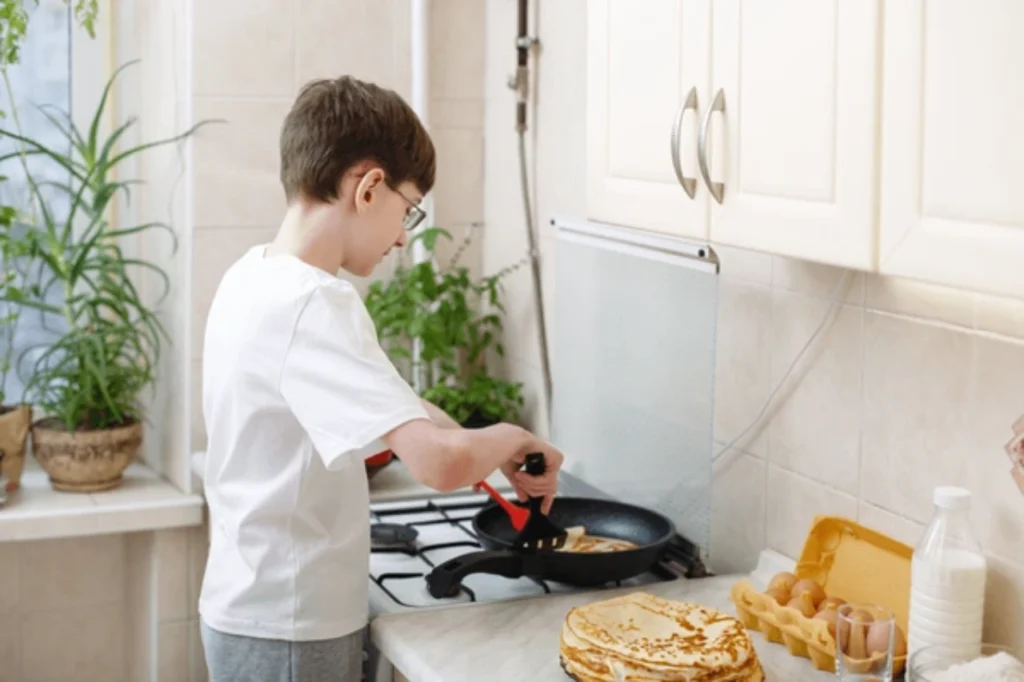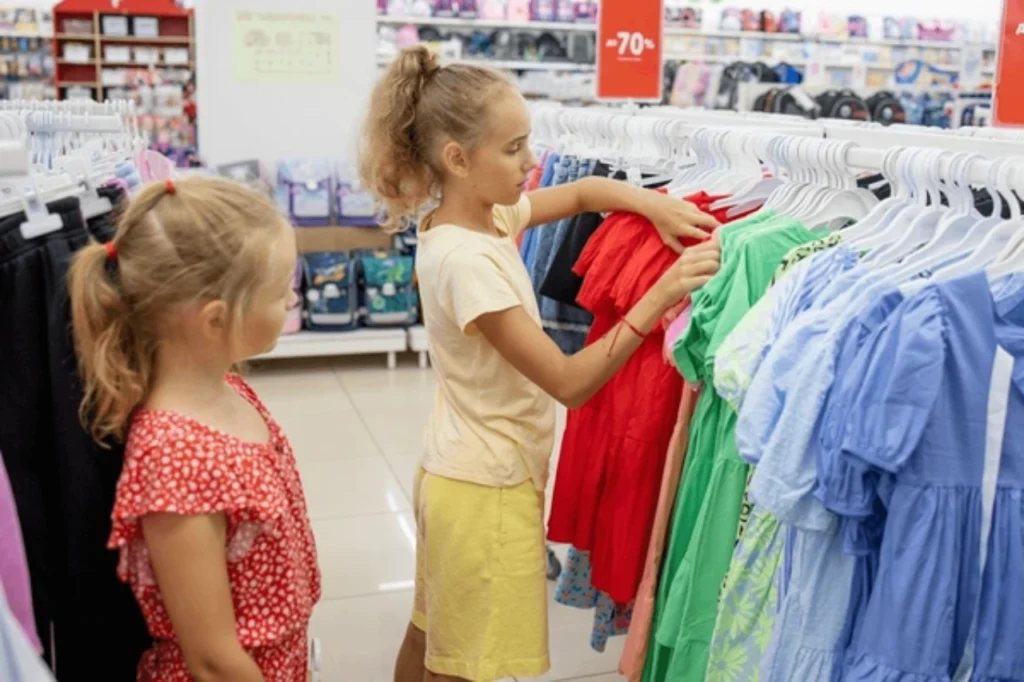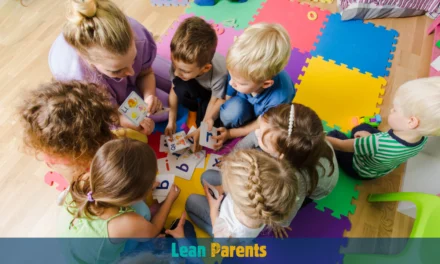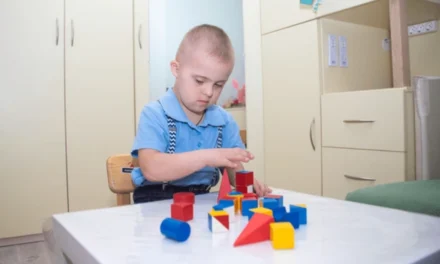Did you know that teaching independence early can boost a child’s self-esteem by 40%1? As parents, we can help our kids grow into self-reliant and problem-solvers. The COVID-19 pandemic has given us a chance to teach our kids to handle more on their own. This helps them make decisions with confidence.
In this article, we’ll look at the top five ways to encourage independence in young children. We’ll cover setting daily routines, promoting free play, and how to communicate well. By using these strategies, you can help your child succeed in the long run.
Key Takeaways
- Getting kids involved in simple chores can make them feel more responsible1.
- Letting kids make choices boosts their confidence and decision-making skills1.
- It’s important to give kids time to play and explore on their own1.
- Recognizing small victories is key to encouraging independence2.
- Independence means solving problems, making choices, and handling outcomes2.
Understanding Early Childhood Independence Development
Children are born with a strong desire for independence. This need for self-reliance is key in their growth and self-esteem3. Toddlers and twos can do things like carry their lunch, put toys away, and help with chores3. They may take a bit longer than older kids, but they can do it3.
The Natural Quest for Independence
Babies start showing their independence by trying to hold a bottle or feed themselves4. Toddlers say, “Me do it,” when they want to do things on their own4. This drive for control is important for their development, helping them feel proud of their achievements.
Key Developmental Milestones
The preschool years are a time of great growth. Children learn to do things like self-feeding, dressing, and basic hygiene4. Achieving these milestones boosts their self-confidence and teaches them to handle frustration and keep trying.
Benefits of Early Independence
Early independence is the start of a child’s success. Parents who encourage self-reliance help their kids grow in self-esteem, problem-solving, and decision-making4. Giving choices and letting them take healthy risks builds their confidence and independence.
Creating a Supportive Environment for Independent Growth

Starting early, we can help kids grow independent. Make your home a place where kids can learn to do things on their own. Use stools near sinks for washing hands, give them small towels, and keep tissues easy to find5. Clothes that are easy to put on and take off also help them feel more in control5.
It’s important to be patient and let kids try new things. This helps them learn and grow6. Teachers and parents play a big role in helping kids become independent learners5. Letting kids make some choices helps them feel more in charge of their learning5.
Talking clearly about what they need to do helps kids learn to do things by themselves5. Using words, gestures, and facial expressions is key to encouraging kids to be independent5. It’s also important to share this approach with parents and carers to keep the support going5.
“A person’s a person, no matter how small.”
– Dr. Seuss, Horton Hears a Who (1955)5
By making a safe and supportive space, and by talking and involving kids, we can help them grow into independent and self-assured individuals.
| Supportive Parenting Practices | Benefits for Children |
|---|---|
| Providing choices and autonomy support | Higher self-esteem, confidence, and academic/social performance6 |
| Encouraging intrinsic motivation | Increased motivation and persistence6 |
| Adapting routines to support independence | Embracing independence and self-reliance5 |
By making a supportive, child-friendly environment and encouraging independent growth, we can help kids develop important skills. This helps them feel more confident and self-assured from a young age56.
The Power of Daily Routines in Building Independence
Having daily routines is key to helping kids become independent. These routines help kids know what to expect each day. They learn to do more things on their own, like getting dressed or eating by themselves7.
As kids do these routines over and over, they start to feel more confident. They learn to do more things by themselves. This builds their self-reliance7.
Morning Routines
Morning routines give kids a sense of control over their day. Simple tasks like dressing or brushing teeth help them develop important skills. These tasks make them feel more in charge of their world8.
Using charts or pictures can help kids understand and follow these routines. This makes them feel more independent7.
Mealtime Independence
Mealtimes are great for teaching kids to be independent. Tasks like setting the table or cleaning up can make them feel responsible. It’s a way to teach them about contributing to the family8.
Assigning simple chores, like putting away dishes, helps kids learn to do things on their own. It also helps the household run smoothly8.
Bedtime Responsibilities
Bedtime routines are important for kids’ independence too. Letting them help with getting ready for bed or choosing their pajamas makes them feel more in control. It helps them adjust to bedtime better8.
Using reward charts can encourage kids to do their bedtime tasks. This makes them feel more independent and responsible8.
By setting up daily routines, parents help kids take charge of their lives. These routines give kids structure, confidence, and self-reliance7. They also make kids feel safe and happy8.
“Engaging in predictable environments and positive adult-child interactions is essential for children’s social and emotional development and helps prevent challenging behaviors.”7
Effective Communication Strategies for Independence
Effective communication is key to helping young children become independent9. Parents can use clear language and choices to help kids make their own decisions10. This method boosts both the child’s independence and self-confidence.
Explaining what’s next and giving cues for changes are important10. It helps kids know what to expect and feel confident in doing things on their own. The P-R-I-D-E skills also help by encouraging good behavior and independence9.
- Praise effort rather than outcome to reinforce positive behaviors and build confidence.
- Reflect appropriate speech to validate and encourage the child’s communication skills.
- Imitate the child’s actions and words to demonstrate engagement and understanding.
- Describe positive behaviors to provide clear feedback and encouragement.
- Express enthusiasm and genuine interest in the child’s achievements and milestones.
Using these strategies, parents can help their children grow in independence and self-esteem10. When kids feel supported and heard, they do better and enjoy growing up.
Effective communication is not the same for everyone. It needs flexibility, patience, and understanding of the child’s age10. By adjusting their way of talking, parents can build a strong base for independence and success910.
Independence in Childhood: Building Blocks for Success
Helping children become independent is key to their success. Skills like self-help, problem-solving, and decision-making are essential. These skills help kids feel confident and able to handle life’s challenges.
Self-Help Skills
Teaching kids to dress, feed themselves, and practice hygiene is important. These skills boost their self-reliance and make them feel proud of themselves.11
Problem-Solving Abilities
Letting kids solve problems on their own is crucial. It helps them become resilient and think critically. This way, they learn to face challenges head-on11.
Decision-Making Practice
Offering kids choices helps them develop decision-making skills. This practice boosts their autonomy and self-awareness. It’s vital for their growth and success11. High self-esteem helps kids do well in school and with friends12. It also makes them feel closer to their ideal selves12.
By teaching kids self-help, problem-solving, and decision-making, we prepare them for the future. These skills build their confidence and prepare them to face life’s challenges with courage and self-assurance.
Healthy self-esteem comes from feeling secure, belonging, and having a sense of purpose. It also comes from feeling competent, proud, and trusted. Families that focus on strengths and avoid criticism help build self-esteem in kids12.
The Role of Choice in Developing Independence

Offering choices is a great way to help young children become more independent. Children who get to make choices feel powerful and in control, which helps them grow13. This lets them help decide things like what to wear or what to do. Giving them a few options, like where to put their coat, makes them feel more in charge without losing control13.
Peer pressure can influence their choices, so teaching them to make decisions on their own is key14.
Letting children choose can also make them happier and more willing to try new things. This helps them solve problems in creative ways14. When kids have choices, they feel more in control, which helps them become more independent.
Learning to make good choices is important for kids’ whole lives13. It involves identifying problems, gathering info, weighing options, making a choice, and acting on it14. By guiding them through this process, parents and caregivers help kids develop decision-making, empowerment, and child choices skills.
“Offering two or three choices to children can be a good starting point to allow them to make decisions. Childcare providers are encouraged to give choices only that they can agree to.”
Choosing for kids can help avoid power struggles and improve their behavior13. Making healthy choices means knowing when to think before acting and choosing better options for the future14. Creating an environment where kids can make choices helps them become more independent and skilled at making decisions.
Having free play time and keeping toys and books out helps kids make choices and become more independent13. It’s also important to teach them to bounce back from mistakes and see failures as chances to learn14. By giving kids the freedom to choose, parents and caregivers help them develop decision-making skills and a strong sense of empowerment and child choices131415.
Age-Appropriate Tasks and Responsibilities
It’s important to give kids tasks that fit their age. This helps them feel capable and responsible. Research shows that kids who do chores feel better about themselves and are more responsible16.
Toddler Tasks
Toddlers (ages 2-3) can start with simple chores. They can put toys away, fill a pet’s food bowl, and sort clothes17. These tasks teach them to help out and feel important.
Preschooler Duties
Preschoolers (4-5 years old) can do more. They can make their bed, help clear the table, and pull weeds17. These tasks help them learn and feel more involved.
| Age Group | Suggested Chores and Responsibilities |
|---|---|
| Toddlers (2-3 years) | Putting toys away, filling pet’s food bowl, placing clothing in hamper |
| Preschoolers (4-5 years) | Making bed, clearing table, pulling weeds, matching socks |
| Primary Schoolers (6-9 years) | Sweeping floors, cleaning bedroom, loading dishwasher, vacuuming |
| Middle Schoolers (10-13 years) | Washing dishes, preparing meals, washing car, babysitting siblings |
| High Schoolers (14+ years) | Deep cleaning kitchen, mowing lawn, caring for pets, sewing buttons |
Using a star chart or rewards can help kids behave well16. For younger kids, start with small tasks and make chores fun16.
“Fostering independence in children is a gradual process, but the rewards are immeasurable. By assigning age-appropriate tasks and responsibilities, we empower our kids to develop essential life skills and a sense of purpose.”
Start early and guide your kids as they grow. Increase their responsibilities as they become more capable1617.
Balancing Support and Freedom
As parents, finding the right balance is key. It’s about giving support and freedom to grow. This balance means stepping back to let kids solve problems. But, be there when they need you18.
It’s important not to fight over small things. Instead, set clear rules and talk openly19.
Support is vital, but so is letting kids explore and learn19. Letting them make mistakes helps them learn responsibility. As they grow, give them more freedom and trust20.
- Let kids help make big decisions, like school or rules20.
- Give them safe ways to try new things, like exploring boundaries20.
- Be there for them, even if you don’t agree, to build trust20.
- Show them how to make good choices to earn more freedom20.
By finding the right balance, parents help kids become independent and confident19.
“Train up a child in the way he should go, and when he is old he will not depart from it.” – Proverbs 22:6 (NLT)19
This old saying tells us to guide kids the right way. Give them freedom to grow but support them too19. This way, parents help their kids become strong and independent18.
Creating Opportunities for Independent Play
Encouraging independent play is key for a child’s growth. It boosts their creativity, problem-solving, and self-reliance. Independent play lets kids explore and learn on their own. This makes them more confident and self-assured21.
Structured vs. Unstructured Play
Both kinds of play are vital for independence. Structured play has guided activities, while unstructured play is free and creative22. Mixing both helps meet different child needs and interests2122.
Safe Exploration Zones
Setting up safe play areas at home is great for independent play. Giving kids various materials like art supplies or blocks sparks their imagination2122.
Parents should watch their kids play but not interfere too much. This lets kids learn to explore safely, build confidence, and feel in control2223.
| Age Range | Independent Play Duration |
|---|---|
| Babies (1-3.5 years) | Up to 2 minutes23 |
| Toddlers (1-2 years) | Up to 4 minutes23 |
| Preschoolers (3-4 years) | Up to 8 minutes23 |
Remember, every child grows at their own speed. A supportive and engaging space helps kids love exploring and solving problems2223.
“Unstructured quiet free play in early childhood (ages 2 to 5) may lead to better self-regulation skills in the future.”22
Fostering Self-Help Skills in Daily Activities
Teaching young children to help themselves is key to their independence and success. Activities like dressing and making snacks help build confidence and life skills. Parents who let kids help with are helping them grow up to be independent and solve problems.
Being patient and encouraging is important when teaching kids to do things on their own. It may take time, but the benefits are huge24. Research shows that kids who can wash their hands and brush teeth by themselves are learning important hygiene skills early24.
Getting kids involved in cleaning up toys and organizing their bags teaches them responsibility24. It also helps them learn to solve problems and manage their feelings, which are vital for their emotional well-being.
25 Studies reveal that kids who do chores early in life are more independent as adults25. Setting up daily routines and giving them the right tools boosts their confidence and helps them grow.
25 Teaching kids to take care of their hygiene and use the toilet on their own makes them more self-sufficient25. Practicing self-feeding boosts their confidence and self-esteem25. Child care providers are also important in teaching these skills by encouraging kids to be responsible and showing them how to do things for themselves.
Teaching self-help skills through daily activities is a great way to help kids become independent and confident. With patience, support, and guidance, kids can grow up to be self-reliant and ready for the future.
The Impact of Praise and Encouragement
Praise and encouragement are key in helping young children grow independent. It’s important to praise their effort and process, not just the result. For example, saying “I’m proud of you for sticking with that even when it got hard” is more meaningful than just saying “You’re so good at tying your shoes.” Studies show that praising effort leads to a growth mindset26.
Recognizing children’s efforts helps build their confidence. By acknowledging their hard work and growth, parents can inspire them to keep trying new things. Research shows that praising effort helps children become more resilient and eager to learn26.
Effective Praise Techniques
- Focus on effort and process, not just outcomes
- Provide specific, genuine praise that recognizes progress
- Encourage a growth mindset by highlighting how hard work and perseverance lead to improvement
- Avoid comparative or generic praise that could undermine a child’s confidence
Building Confidence Through Recognition
Research shows that praising effort and strategies helps children develop a growth mindset26. This positive reinforcement motivates them to keep growing and trying new things, even when it’s hard.
| Independence Importance Summary | Age-Appropriate Tasks |
|---|---|
|
|
“Praising the process rather than the outcome helps children develop a growth mindset.” – Carol Dweck, Renowned Psychologist
Implementing age-appropriate tasks and routines helps children grow independent and develop important life skills27. By praising their efforts and progress, parents can help them develop a positive mindset that supports independence and success26.
Managing Challenges and Setbacks
Teaching kids to be independent comes with its own set of challenges. But, parents can help them through these tough times. By letting kids feel frustrated and solve problems on their own, parents help them grow stronger and smarter28.
This way, kids learn to see failures as chances to learn and grow. It’s all about having a positive mindset and seeing challenges as opportunities for growth28.
It’s important for parents to stay patient and encouraging. By doing so, kids learn to keep going even when things get tough. Parents should only help when it’s really needed, so kids can learn to solve problems on their own28.
Having a supportive and caring home environment is vital. Parents who show resilience and know when to ask for help teach their kids valuable lessons. This way, kids become confident and ready to face any challenge that comes their way29.
FAQ
What are the key developmental milestones for early childhood independence?
How can parents create a supportive environment for their child’s independent growth?
What is the importance of daily routines in nurturing independence?
What communication strategies can parents use to foster independence?
What are the key skills that support independence in early childhood?
How can parents effectively use choices to develop their child’s independence?
What are some age-appropriate tasks and responsibilities for building independence?
How can parents balance support and freedom to foster independence?
What role does independent play have in developing creativity, problem-solving, and autonomy?
How can parents effectively praise and encourage their child’s independence?
How should parents handle challenges and setbacks in their child’s journey towards independence?
Source Links
- 6 Little Things You Can Do Every Day to Make Your Child More Independent
- 10 Ways to Encourage Independence in Your Child at Home – Children’s House Montessori School of Reston
- Growing Independence: Tips for Parents of Toddlers and Twos
- Children Developing Independence: What is the Right Balance?
- Promoting independence – How to do it in Early Years | Enabling Environments | Teach Early Years
- Supporting Your Children’s Autonomy and Independence
- The Importance of Schedules and Routines | ECLKC
- Encouraging Independence in Children: Rewards and Daily Routines
- Communication Strategies for Empowering and Protecting Children
- Communicating Effectively With Children | MU Extension
- 5 Building Blocks of Early Childhood Development—Littlebird
- Building Blocks for Healthy Self Esteem in Kids
- Giving children choices
- Developing Decision-Making Skills at a Young Age Is Important
- Encouraging Independence in Toddlers
- Chores and Children
- Kids Chores List by Age: The Ultimate List of Age-Appropriate Chores
- FOSI | Balancing Kids’ Online Safety and Independence
- Responsible Independence: Giving Your Child Their Freedom – Saddleback Parents
- Balance trust and freedom with your teenager
- Encouraging Independent Play — Montessori in Real Life
- How to Encourage Independent Play With Toddlers – Stories of Play
- Independent Play: What it is and why it’s important | Lovevery
- Encouraging Self-Help Skills in Young Children – Jan Peterson Blog
- Ways to Encourage Self-Help Skills in Children
- Parent Praise to 1-3 Year-Olds Predicts Children’s Motivational Frameworks 5 Years Later
- Let Them Shine! Promoting Independence through Age-Appropriate Tasks and Routines – Child Development Institute
- Empowering Independence: Teaching Life Skills for Confident, Resilient Kids! – Child Development Institute
- Building Independence: Teaching Your Child When and How to Ask for Help — The Psychiatry Resource






Trackbacks/Pingbacks